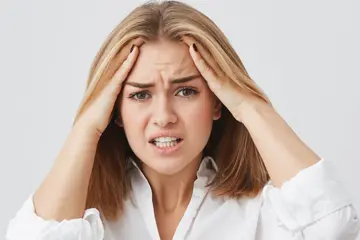Anxiety is one of the most prevalent mental health conditions. Anxiety disorders affect more than 19% of adults in the United States, according to the National Alliance on Mental Illness (NAMI). Anxiety is believed to be caused by a combination of genetic and environmental factors and could also occur due to a medical condition, such as an overactive thyroid. Other mental health conditions, such as substance abuse and depression, can also trigger feelings of anxiety.
There are effective natural remedies that can help reduce anxiety. These natural anxiety treatments are those that don’t involve taking prescription drugs or medicine. If you find that your anxiety does not go away or is affecting you severely, it is best to seek professional help. These natural methods can be used along with medical treatments to calm the nerves.

Here are 8 natural remedies to reduce stress:
- Exercise: Exercise is important for physical and mental wellbeing. Studies have shown that exercise can help reduce the symptoms of anxiety, though the connection is not fully understood.Engaging in physical activity makes you focus on something else. It causes the body to release endorphins, which are ‘happy hormones’ or hormones that make you feel good.
- Meditation: Meditation can help to slow racing thoughts, making it easier to manage stress and anxiety. There are a wide range of meditation styles, including mindfulness and meditation during yoga.
- Herbal Treatments: There are herbs and herbal supplements to help with anxiety symptoms. The most popular options that have calming effects are lemon balm, lavender, chamomile and passionflower. According to studies, chamomile helps ease the signs of generalized anxiety disorder. Despite the fact that there have only been a few research on herbal medicines for anxiety, the findings are encouraging. Several of these (and other) supplements are available in capsule or pill form. Herbal teas are also a popular way for individuals to unwind and relax.
- Stop Consuming Alcohol and Cigarettes: Both alcohol and smoking may initially seem to ease your nerves. But if you drink, your anxiety can get worse. Alcohol dependence can arise as a result of a cycle.Numerous studies also indicate that smoking can make anxiety symptoms worse. Cutting down on drinking and smoking lessens anxiety-related sensations.
- Practice Deep Breathing: Breathing quickly and shallowly is a typical sign of worry. This type of breathing can make you feel lightheaded, increase your heart rate, and possibly increase your risk of having a panic attack. In order to restore regular breathing patterns and lessen anxiety, deep breathing requires taking slow, deliberate breaths that are both deep and measured.
- Prioritize Sleep: Avoiding caffeine, heavy meals, and nicotine before bedtime, keeping your room dark and cool, writing down your worries before going to bed, going to sleep at a reasonable hour, sleeping at night when you’re tired, avoid reading, watching television, using your phone, tablet, or computer in bed tossing and turning in your bed or going to another room if you can’t sleep.
- Reduce your Caffeine Intake: Caffeine is not your friend if you suffer from persistent anxiety. If you’re uneasy, caffeine may make you jittery and agitated, neither of which are helpful. Caffeine can contribute to or exacerbate anxiety disorders, according to research. In those who suffer from panic disorder, it could potentially trigger panic attacks. Caffeine withdrawal can significantly reduce anxiety symptoms in some people. Due to its capacity to change brain chemistry, coffee and anxiety are frequently associated, much like alcohol and alcoholism. To reduce or stop consuming caffeine altogether, start by gradually cutting back on your regular intake. Try substituting water for these drinks to quench your thirst. This will not only fulfil your body’s desire for liquid but will also flush caffeine from your body.
- Consume a Healthy Diet: Some people experience mood changes as a result of low blood sugar, dehydration, or chemicals included in processed foods such artificial flavorings, artificial colorings, and preservatives. A high-sugar diet may affect mood as well.Check your eating habits if your anxiety gets worse after eating. Drink plenty of water, steer clear of processed foods, and consume a balanced diet high in lean proteins, fruits, and vegetables.
Keep in mind that while all the above mentioned home treatments may reduce anxiety, they shouldn’t be used in place of professional assistance. Therapy or prescription medication may be necessary to treat increased anxiety.